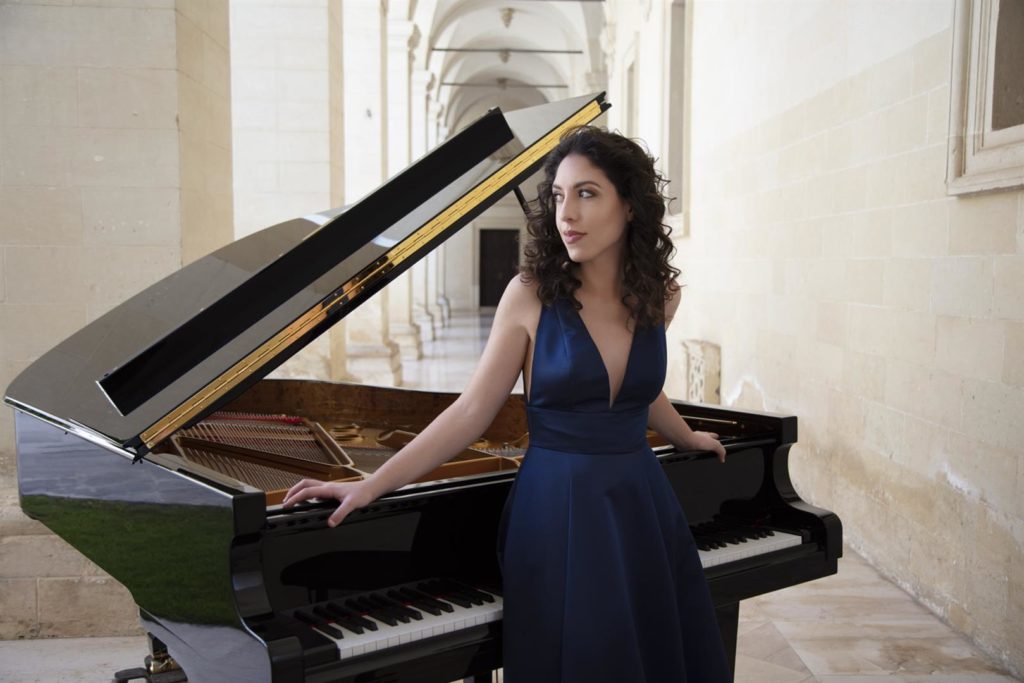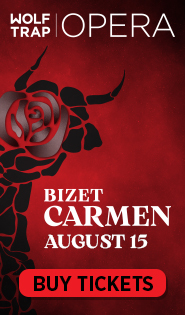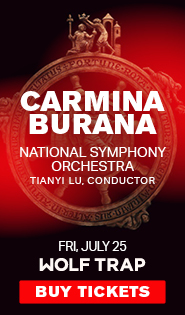Beatrice Rana makes understated NSO debut with Schumann

Beatrice Rana performed the Schumann Piano Concerto with the National Symphony Orchestra Thursday night at the Kennedy Center.
James Gaffigan returned to the podium of the National Symphony Orchestra Thursday evening, for his second appearance in the same season after last fall’s performances of Bernstein’s Mass. The American conductor applied his flashy, dancing baton style to a program that also featured the long-awaited NSO debut of pianist Beatrice Rana in the Kennedy Center Concert Hall.
Gaffigan opened with two extended selections from the ballet music Mozart wrote for his opera Idomeneo. With only about thirty string players and the required pairs of other instruments, the NSO produced a lean, incisive sound in the opening “Chaconne.” Gaffigan helped give its rondo-like refrain a distinct articulation and plenty of dynamic shape.
The “Pas seul,” a full-throated set of movements in accelerating tempi for a single dancer, turned a little ragged at the edges. Gaffigan’s tendency toward speed and excitement played against the sense of movement occasionally contrasted with graceful pauses that is needed in this music. While it moved along in a spirited way, the music too often felt colorless and undifferentiated.
After Beatrice Rana won the Silver Medal at the Van Cliburn Competition in 2013, she gave two local recitals in the Washington area, first at Wolf Trap and then at the Kennedy Center. It has taken some time to bring her to the Concert Hall, where the Italian pianist was the first to play Schumann’s Piano Concerto with the NSO since the late Nicholas Angelich in 2019. Rana has just recorded the work, paired with Clara Schumann’s Piano Concerto, on a disc to be released next month.
Clara premiered her husband’s Piano Concerto in Dresden in 1845, and her mark remains on the piece in many ways. Rana’s performance shone with exceptional technical prowess, heard in the crashing opening chords of the first movement as well as the broad-handed cadenza near the end. At the same time, the delicacy of her touch gave an introspective sheen to the shyer themes—as with the tender A minor melody in which Robert spelled out the name Chiara, his nickname for Clara, first played warmly by assistant principal oboist Jamie Roberts.
Given the promising opening to the concerto, the second movement disappointed, as Rana rushed through the opening section, delicate but missing poignant turns of phrase. The cello section provided a counterweight by weaving their tender, soaring tune into the texture, an anchor that slowed the tempo down. Rana drew on the soft side of her sound admirably throughout the concerto, almost evanescing completely into the orchestral texture at times.
No weakness appeared in the driven Finale, as Rana rode through the near-constant stream of percolating notes almost flawlessly. The orchestra responded with boisterous forte sound in their tutti sections, which Gaffigan helped to coordinate with a sure hand. The pianist offered an encore in the same polished, restrained vein, Schumann’s flowing Romanze in F sharp major, Op. 28, no. 2.
Gaffigan, always in search of restless intensity, drove the first movement of the final work, Dvořák’s Seventh Symphony, to a harried pace. The NSO musicians, now at full capacity and with all of the principal musicians back in their seats, responded with an exciting interpretation. While the first movement proved thrilling, the same approach undermined the plangent languor of the second movement, which the composer marked with the words “From the sad years,” likely referring to the deaths of his mother and oldest son.
The Scherzo, with its fluid interplay of duple and triple meters, scampered along, with Gaffigan’s clean gestures holding the ensemble tightly together, even with his occasional further pressing forward of the tempo. The musicians leapt directly from the Scherzo’s manic conclusion into the Finale, its equally rapid pacing softened by periodic rallentandos, a flexibility of tempo that recalled the influence of Bohemian folk music on Dvořák. The trombones and horns powered gripping climaxes, moving ultimately and not quite convincingly from D minor to the parallel major.
The program will be repeated 8 p.m. Saturday, with a partial program (minus the Schumann) presented 8 p.m. Friday at the Anthem. kennedy-center.org



Posted Feb 07, 2023 at 6:27 am by Michael Silver
Any way to find out what Beatrice Rana’s encore was on Sat night?
Posted Feb 09, 2023 at 2:21 pm by Nigel Boon / NSO
Yes, it was Debussy’s Etude No.6 Pour Les Huit Doigts